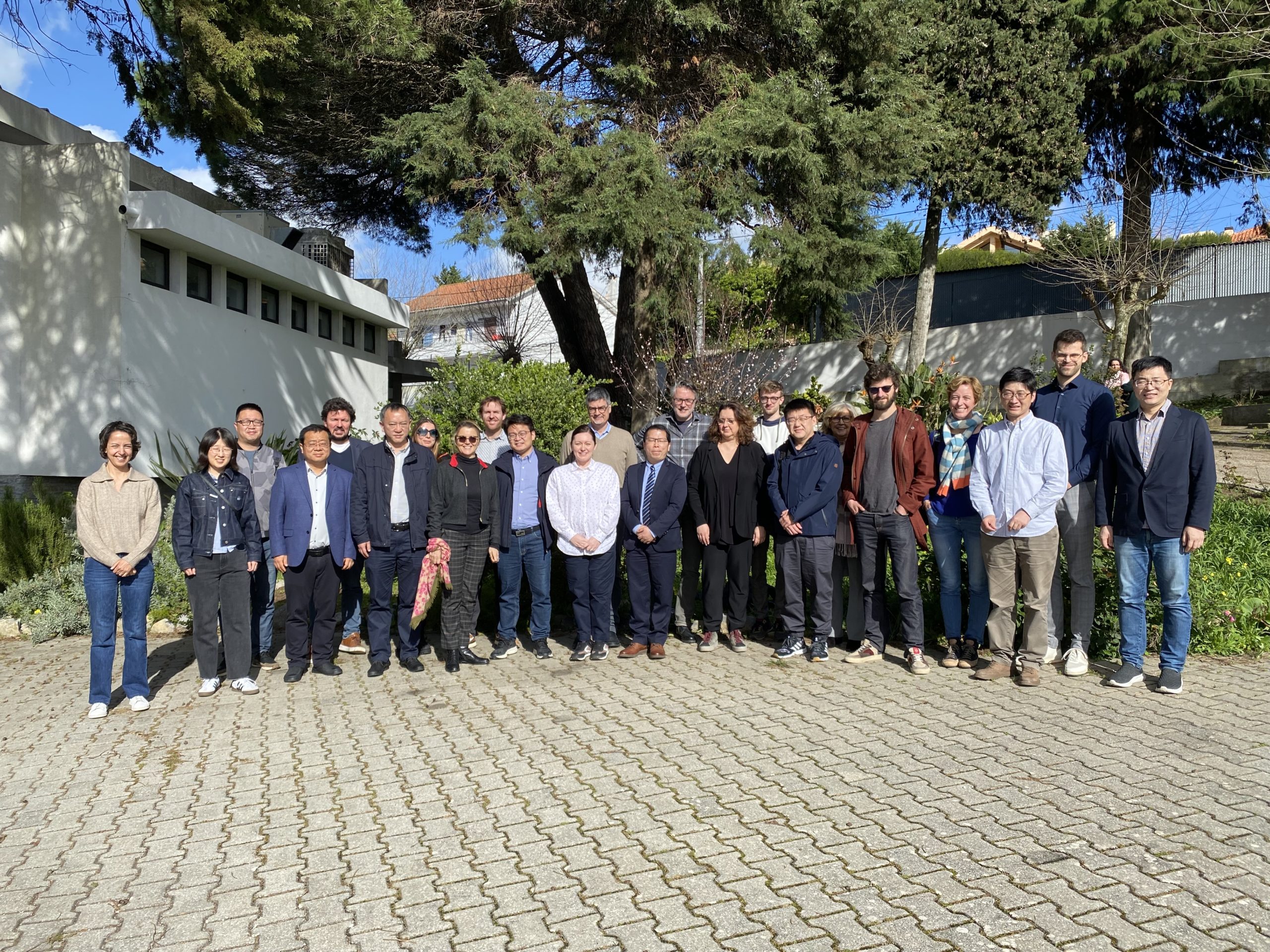
This week the AgriLoop consortium will hold its annual meeting, kindly hosted by the Nova School of Science and Technology, Universidade NOVA de Lisboa, Portugal from 4 to 7 March 2024.
The European partners will be joined by representatives from thirteen Chinese partners who are attending the meeting in person. This will allow partners to take stock of the project’s initial progress, it is also a real opportunity for the Chinese partners to meet and strengthen links with their European counterparts.
Visit to the National Research Institute for Agriculture, Food and Environment
Following the annual meeting in Portugal, the delegation of Chinese partners will travel to Montpellier, France on 8 and 9 March 2024 to visit the National Research Institute for Agriculture, Food and Environment (INRAE). During the visit they will see the research laboratories of IATE, the European coordinating partner of the project, and the LBE in Narbonne, where they will look at issues such as the production of substitutes for petrochemical plastics, the recovery of agricultural residues and methanisation.
Our Chinese delegation
Chinese partners include both academic and private partners, ranging from SMEs up to larger organisations, namely: Huazhong Agricultural University, Beijing Technology and Business University, Institute of Food Science and Technology, Chinese Academy of Agricultural Sciences, Shandong Jinsheng Cereals & Oils Foods Co. Ltd, Sichuan Runge Biology Science And Technology Co., Ltd, Beijing Long Age AMMS Biological Technology CO. LTD , Nankai University, Hebei NACOL Biotechnology Co., Ltd , Biogas Institute of Ministry of Agriculture and Rural Affairs, Chinese Academy of Agricultural Sciences, Shandong youhe Biotechnology Co., Ltd, SDIC Zhonglu Juice Co. Ltd and the Institute of Agricultural Resources and Regional Planning, CAAS.
Working together to find biobased solutions for the food, feed and farming sectors across the globe
The consortium consists of 35 partners (half academic, half private) who have been involved in an international consortium aimed at increasing the value of agricultural production in two major players in the global bioeconomy: the EU and China and reducing its impact on our environment and health.
The aim is to replace oil and food resources with unused agricultural residues (which account for around 50% of crop weight) by converting them eco-efficiently into a portfolio of high value-added bioproducts capable of creating new bio-based markets or competing with their petrochemical equivalents.
The conversion of these agricultural residues (from the tomato, soya, straw, potato, brewery, oil, winery and livestock sectors) will be developed through safe and sustainable bioconversion processes (integrated in a cascade biorefinery approach) to produce plant and microbial proteins for food and feed, biodegradable polyesters and other bioproducts for various sectors such as materials and healthcare, particularly in the agricultural sector.
Looking to the future
This visit starts the journey to strengthen European and Chinese cooperation and opens up new avenues for flexible, agri-based value chains, enabling the consortium to join forces to increase agricultural sustainability, grow the bioeconomy and tackle climate change and plastic pollution.
You can follow the projects process of social media (X and LinkedIn).